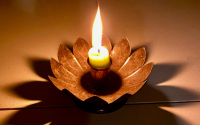13 October 2005Guardian
As negotiating tactics go, it's a pretty transparent one - but it still seems to work every time in British politics. The government has a policy it knows will arouse a blizzard of controversy. So it starts out with a maximalist, even outlandish, version. When that is predictably greeted with outrage, it retreats crab-like to its core position - and the final outcome is then accepted with relief that the government has compromised. But the net effect is to drive through measures that might have been thrown out without the softening-up process.So it has been with Tony Blair's anti-terror plans, first unveiled in August in the wake of the London bombings. In their original back-of-the-envelope formulation, they included the truly Ruritanian wheeze of codifying a list of violent historical events that Britons could be sent to prison for "glorifying, exalting or celebrating". Last week, after two months of ridicule, the home secretary, Charles Clarke, let it be known that the most absurd parts of this censorship scheme had been dropped. Then on Tuesday, he signalled that the government might be prepared to shift on its proposal to jail terror suspects without charge for up to three months.
The apparent climbdown has, as expected, been embraced by key opponents. But, as publication of the terrorism bill yesterday confirmed, the most dangerous and inflammatory elements in Blair's August package are still there: not only the effective internment power, but deportation to countries that routinely torture; banning of non-violent political parties; state control of mosques and the outlawing of any statement that might be seen as inciting or glorifying terrorist acts (including in history).
The main opposition parties are now focused on detention without charge. The Liberal Democrat home affairs spokesman, Mark Oaten, wrote on these pages this week that the three-month internment power was now the "one major sticking point" - and changes to the glorification clause, he thought, meant that it was "a lot better" and that non-violent organisations such as the radical Islamist group Hizb ut-Tahrir could not be banned.
In fact, under the terms of the bill, anyone who voices support for armed resistance to any state or occupation, however repressive or illegitimate, will be committing a criminal offence carrying a seven-year prison sentence - so long as members of the public might reasonably regard it as direct or indirect encouragement. Terrorism is not defined in the bill as, say, indiscriminate attacks on civilians, let alone an assault on civilian targets by states - but as any politically motivated violence against people, property or electronic systems anywhere in the world. This is not only an assault on freedom of speech and debate about the most contentious subject in global politics. It also makes a criminal offence out of a belief shared by almost every society, religion or philosophy throughout history: namely, that people have the right to take up arms against tyranny and foreign occupation. Clarke made clear on Tuesday that this was exactly his intention. He could not, he said, think of any situation in the world where "violence would be justified to bring about change".
Clearly, that did not apply to the invasion of Iraq or the bomb attacks on street markets carried out in Baghdad by US and British-backed opposition groups before 2003. But, as the mayor of London pointed out yesterday, support for Nelson Mandela, the wartime resistance and any number of anti-colonial liberation movements would all have been crimes under this bill. In practice, of course, the law is intended to be used selectively: it is aimed not just at those who praise bomb attacks on the London tube, but at Muslims and others who believe that Palestinians, Iraqis, Afghans and others have a right to resist occupation.
If there were any doubt about that, Blair's stated intention to use this bill to ban Hizb ut-Tahrir - reaffirmed this week by the Home Office - should dispel it. There is little love lost among many Muslims - let alone non-Muslims - for Hizb ut-Tahrir, which campaigns for a restored caliphate (or unified Islamic political authority) throughout the Muslim world and against participation in elections. Although it denies being anti-Jewish, the organisation had on its website until recently a statement which by any reckoning crossed the line from anti-Zionism into anti-semitism. But there is also no evidence at all that it is involved in terrorism - it condemned both the London bombings and the 9/11 attacks. It does not, however, condemn armed resistance in Iraq and Palestine, which is how the government plans to catch it. Along with the criminalisation of support for resistance movements, such a ban on a non-violent political party would be unprecedented in modern British history. When set against the toleration of the routinely violent and relentlessly racist British National party, it is scarcely surprising that Muslim opinion is overwhelmingly hostile to all the main planks of the legislation.
The home secretary's remarks in Washington last week that in dealing with global Islamism "there can be no negotiation about the recreation of the caliphate ... no negotiation about the imposition of sharia law" (when support for the latter in particular, variously interpreted, is widespread in the Muslim world) heightens the perception that the war on terror is also a war on Islam. Blair's August announcement was designed to show the government was taking tough action to protect the country from any repetition of the London bombings - and offset the majority view that he had put his own people in danger by invading Iraq. But if the terrorism bill in its current form becomes law, the likelihood is that instead of reducing the terror threat, it will increase it.
Any operational benefit to the police is bound to be more than offset by the further alienation of exactly those sections of the Muslim community whose cooperation is needed to prevent more atrocities. If peaceful organisations are banned, Muslims are routinely locked up without charge and support for mainstream Muslim causes is criminalised, some will certainly be intimidated and keep their heads down. But others will conclude that participation in politics is pointless, that the tolerance and liberal democracy proclaimed by the political establishment is a fraud - and go underground. It is in everybody's interests that parliament resists a panic measure which threatens us all.






